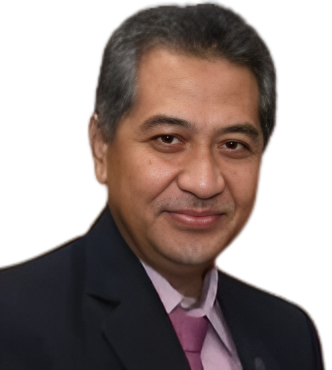Overview:
The Follow-up and Evaluation Committee is a fundamental component of the Union of Afro-Asian Universities (UAAU), dedicated to ensuring that every initiative, program, and project undertaken by the union is rigorously monitored, systematically evaluated, and continuously improved. This committee is tasked with overseeing the implementation of strategic plans and measuring performance outcomes through robust, data-driven methods. By maintaining a vigilant oversight function, the committee guarantees transparency, accountability, and the highest standards of academic and operational excellence within the union.
Leadership

Prof.Dr. Hamid Fahmy Zarkashi
Head of the Follow-up and Evaluation Committee
President of University of Darussalam Gontor
Mission:
To provide a comprehensive framework for the systematic follow-up and rigorous evaluation of UAAU initiatives, ensuring that all projects meet established quality standards and contribute effectively to the union’s overarching objectives of academic excellence, innovation, and sustainable development.
Vision:
To be the benchmark for excellence in performance measurement and continuous improvement in higher education, enabling the Union of Afro-Asian Universities to set and maintain global standards of quality, accountability, and impact in all its endeavors.
Core Values:
- Excellence: Commitment to achieving the highest standards in monitoring and evaluation, ensuring that every initiative delivers measurable, positive outcomes.
- Accountability: Upholding a culture of transparency and responsibility by meticulously tracking progress and evaluating performance against clearly defined benchmarks.
- Integrity: Ensuring that all evaluations are conducted with impartiality, honesty, and ethical rigor, thereby building trust among stakeholders.
- Objectivity: Utilizing data-driven and evidence-based approaches to assess program effectiveness and inform decision-making.
- Continuous Improvement: Fostering an environment that embraces feedback and iterative learning, continually refining strategies to achieve optimal performance.
- Collaboration: Encouraging cross-institutional and interdisciplinary cooperation to share best practices, foster innovation, and collectively enhance the union’s impact.
Strategic Objectives and Initiatives:
1. Establishing a Robust Evaluation Framework
- Comprehensive Standards: Develop and implement a set of standardized performance indicators and evaluation criteria that align with international best practices and the strategic goals of UAAU.
- Monitoring Systems: Design and deploy advanced monitoring tools and digital dashboards to track progress in real time across all union initiatives, ensuring immediate detection of deviations and timely corrective actions.
2. Systematic Follow-Up and Performance Measurement
- Regular Audits: Conduct periodic audits and assessments to evaluate the effectiveness, efficiency, and impact of each program and project, ensuring adherence to established quality standards.
- Data Analytics: Utilize quantitative and qualitative data analysis techniques to derive actionable insights, support evidence-based decision-making, and highlight areas for improvement.
- Feedback Mechanisms: Implement structured feedback channels that capture stakeholder input, enabling responsive adjustments and fostering a culture of transparency and accountability.
3. Reporting and Communication
- Evaluation Reports: Produce detailed, periodic reports that document performance outcomes, challenges, and best practices, and disseminate these reports to all stakeholders.
- Recommendations and Action Plans: Develop strategic recommendations and action plans based on evaluation findings, guiding the continuous improvement of UAAU programs and initiatives.
- Public Accountability: Ensure that evaluation findings are communicated effectively both within the union and to external partners, reinforcing the union’s commitment to openness and quality.
4. Capacity Building and Institutional Learning
- Training Programs: Organize workshops, seminars, and training sessions on best practices in monitoring and evaluation for university administrators, quality assurance personnel, and project managers.
- Knowledge Sharing: Facilitate forums for sharing experiences, challenges, and innovations in performance measurement, thereby enhancing collective expertise and driving sector-wide improvements.
- Innovation in Evaluation: Encourage research and the adoption of cutting-edge technologies to continuously refine evaluation methodologies and enhance the overall effectiveness of monitoring systems.
5. Strategic Advocacy and Global Engagement
- International Collaboration: Foster strategic alliances with global accreditation agencies, quality assurance bodies, and academic networks to benchmark UAAU’s performance against international standards.
- Policy Influence: Engage with policymakers and international organizations to advocate for best practices in higher education evaluation, contributing to the broader discourse on quality and accountability in academia.